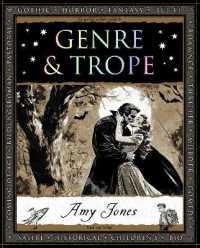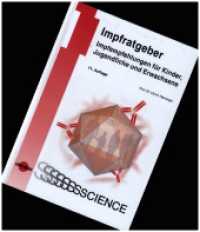- ホーム
- > 洋書
- > 英文書
- > Politics / International Relations
Full Description
To understand fully the process of European integration, it is necessary to consider developments at the sub-national and local level. EU integration scholars have been examining the local level using the concept of multi-level governance (MLG) since the 1990s. While MLG was the first concept to scrutinize the position of local levels of public administration and other actors within the EU polity, it overestimates the degree of influence it ascribes to local levels, particularly as far as the rural is concerned. Focusing on Germany and Finland, with country specific information from all EU member states, this book combines MLG with the concept of structural constructivism, in order to reveal some of the hidden aspects of EU integration. Bringing together these concepts and methodologies and replacing mainstream theories of integration with this new approach, offers a more accurate picture of multi-level interaction in rural policy and of the impacts of European integration at the local level. By examining the Community Initiative LEADER+ and setting this within a discussion of the state and structure of rural development policy, this book looks at the challenges, opportunities and policy options which are available and have been implemented in rural development. It shows that these are often context dependent and that the future of rural development policies, their shape and institutional configuration depend on reforms put in place at all levels of governance. Finally, it argues that the MLG of rural development policy must be built with people who have the know-how and the (local) knowledge to implement development projects and who have made LEADER a success in the past.
Contents
Contents: Introduction; Theories and concepts of European integration; Multi-level governance and structural constructivism - understanding multilevel politics in the European Union; Governing the rural - actors, institutions and power structures; Studying the status of local actors in the community initiative LEADER+ - a methodology for an empirical analysis of Germany and Finland; LEADER+ - actors, Local Action Groups and power relations; LAGs in the administrative structures of LEADER+ - vertical power relations; Local Action Groups and the public; Cooperation beyond Local Action Groups - decision-making and managing authorities; Efficiency and decentralisation; LEADER+ LAGs on the move to the next programmatic period - hopes and expectations for 2007-2013; Empirical findings and discussion; Conclusions; Appendix; References; Index.








